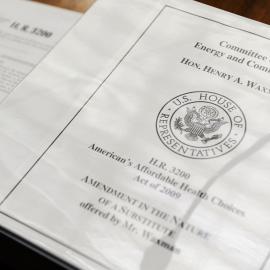William Howell and Jon Pevehouse are correct that partisanship has played an important role in U.S. decisions to go to war in the modern era, but it has hardly been "decisive." From the Reagan administration through those of the two George Bushes, Democratic-controlled Congresses acquiesced in Republican military interventions in Lebanon, Panama, Afghanistan, and Iraq. Similarly, Republican Congresses did not obstruct the Democrat Bill Clinton's military actions in Haiti, Bosnia, Iraq, or Kosovo.
Holding hearings, imposing reporting requirements, adopting resolutions stating that Congress should authorize any future military action, and sponsoring independent legislation opposing military action amount to no more than putting up a fuss, unless they actually culminate in significant legal constraints on presidential power. Congressional Democrats are now challenging the Republican administration over the Iraq war but lack the necessary 60 votes to obtain cloture in the Senate and put real political pressure on President George W. Bush to change course in Iraq. Senate Democrats' failure so far to reach a meaningful compromise with over half a dozen disaffected Republican Senators suggests that they still lack both the will and the capacity to influence military policy. Partisanship here means exploiting Republican weakness in the upcoming elections rather than passing significant legislation.
Stephen R. Weissman
Former Staff Director, Subcommittee on Africa, House Foreign Affairs Committee, and the author of A Culture of Deference: Congress's Failure of Leadership in Foreign Policy
